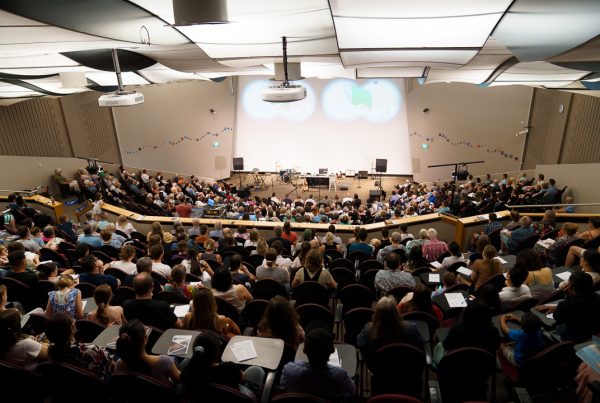1 August 2019
Recently, I read the book, Side by Side, by Ed Welch. It is a great book. Easy to read and profound. It’s a book about loving one another practically. It reminds us that we are all needy but we are all needed.
One chapter which struck me was titled, “Prepare to talk about sin”. Generally, with talk of loving one another practically, we think of meal rosters or providing financially for the needy. But another practical way to love one another is to talk about sin.
Now of course this is really tough. For lots of us we’d much rather talk about our suffering or anything else rather than sin. But if we all need the good news that Jesus Christ came into the world to save sinners then talking about sin isn’t about how we compare to one another. It’s more to do with these verses in Hebrews 12:1-2a:
“Therefore, since we are surrounded by such a great cloud of witnesses, let us throw off everything that hinders and the sin that so easily entangles. And let us run with perseverance the race marked out for us, fixing our eyes on Jesus, the pioneer and perfecter of faith.”
We talk about sin to help throw it off so we might get to the finish line.
These verses remind us that we all have sin that clings to us and can hinder our running. But these verses also imply we’re not participating purely as individuals. It’s a team event.
We throw off sin together. We run the race together. We’re even surrounded by a great cloud of witnesses who have finished the race to inspire and motivate us.
So how ought we talk about sin with one another?
Firstly the book talks about our approach. It starts with humility. Ed writes, “Humility means that we already see our sins as worse than others’ sins, so we have no reason to defend ourselves when someone points out our sin” [p135].
If we are able to acknowledge and admit our sins without anger and defensiveness this will hopefully help us to make progress when addressing other’s sins.
Secondly, we ought to see the good in others and acknowledge hard circumstances before we see the bad. Sometimes sinful actions coincide with tough circumstances. So, opening a conversation to ask if everything is ok or how the other person is going will help acknowledge circumstances, before we move on to the sin itself.
And lastly, just deal with one sin at a time. There are passages that wisely suggest that we don’t need to confront every sin. Ed writes, “The Lord does not wave all our sins in front of us, and they will not be waved in front of us for eternity” [p139]
I encourage you to read the book as it goes on to give more details about how to talk about sin. It’s definitely a challenge, but I hope you can see how important it is for us as a church to help each other throw off sin that so easily entangles.
Liam Shannon
Assistant Minister





